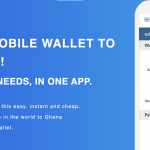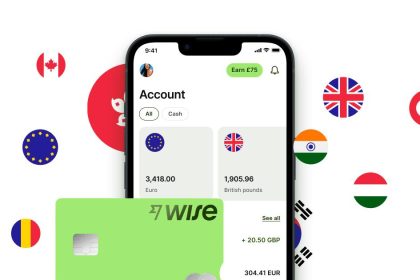Yesterday, the Bank of Ghana and the Ghana Interbank Payment and Settlement System (GhIPSS), launched a new mobile app called the “GhanaPay” app.
The app is basically a mobile money wallet that consumers can use to connect their bank accounts for financial transactions.
The CEO OF GhIPSS, Archie Hesse, stated that the GhanaPay app gives the banks an opportunity of a platform to issue mobile money accounts to customers and individuals that can’t secure banking accounts for one reason or the other and not to solely rely on fintechs and mobile money agents for transactions on the mobile money platform.
Features on the app include the ability to send and receive money from other networks and bank accounts, purchase airtime and data, pay bills, and other value-added services.

With all these features in place and the BOG sponsoring this, is the central bank and GhiPSS in competition with fintech apps in the Ghanaian space?
Current State Of The Ghana Fintech Space
According to the BOG, there are about 70 – 72 fintechs in Ghana operating in different spaces. In order to be fully operational, fintechs need to obtain a license from the BOG to operate in the Ghanaian market.
Most fintechs in Ghana are mostly “payment” apps. They provide services including mobile money wallets, bank transfers, bill payments, and some value-added services.
Most fintechs have to pay for their licenses to the BOG. License fees can go up to figures of almost 20 Million GHC for the highest license level.
With the launch of the Ghana Pay app, it would seem like the BOG and GhIPSS will be competing with most of these payment apps for the same customers. According to the information from the GhIPSS website, transactions on the Ghana Pay app are free with the exception of cash-outs and payment of the E-Levy (1.5% on payments above the threshold of 100 GHC).
With the benefit of having no service fees, the GhanaPay app could look more attractive to consumers.
Is The Bank Of Ghana Playing Fair?
With the introduction of this app, some might say that the BOG/Government is now competing with the fintechs instead of just providing a better fintech environment.
Most fintechs have to pay for their licenses to the BOG. License fees can go up to figures of almost 20 Million GHC for the highest license level.
Also, the Ghana Pay app has no service fees for money transfers with the exception of the E-Levy payments for mobile money payments. But banks have a threshold of 20,000 GHC before an E-Levy fee is applied. This essentially means that the use of the Ghana Pay app is more attractive and incentivizes consumers to use the app than using mobile money or fintech apps to avoid paying extra fees.
Although they provide mostly payment services, there’s still space for innovation with insurance buying, lending (Buy Now Pay Later services), stock and wealth investments, peer-to-peer services, and remittances.
Fintech apps will now have to compete either by absorbing some of the cost of the E-Levy costs or try to compete in other ways to retain their users.
There Is Still Room For More Competiton
With the launch of the GhanaPay app, there is still room to compete. Fintech apps can still innovate on some levels to make their platforms attractive to customers. Currently, the onboarding process for the GhanaApp can be cumbersome with self-registration. You have to go through a USSD code registration and have your Ghana Card ID to fully register for the app.
That could have a negative effect, especially with USSD timeouts and simple mistakes made during registration.
Most fintechs have a better robust onboarding and Know Your Customer (KYC) online processes. It includes filling out basic information through their apps and picture scanning of physical IDs for registration without needing to go into a physical building or establishment.
There’s also room to add more services. Although they provide mostly payment services, there’s still space for innovation with insurance buying, lending (Buy Now Pay Later services), stock and wealth investments, peer-to-peer services, and remittances.
It’s too early to tell how disruptive the Ghana Pay app might be to fintechs and the finance space in general. But with the backing by the BOG and GhiPSS, fintechs definitely have to up their game in the age of the E-Levy fee for payment services.
If a consumer can pay less charges for payment services, why would they need to download another payment app? That’s the current battle that might occur within the fintech space.
With the upcoming E-Cedi currency, will the BOG make the Ghana Pay app a priority and have fintech apps again scrambling to get ahead. We’ll have to wait and see what happens.










